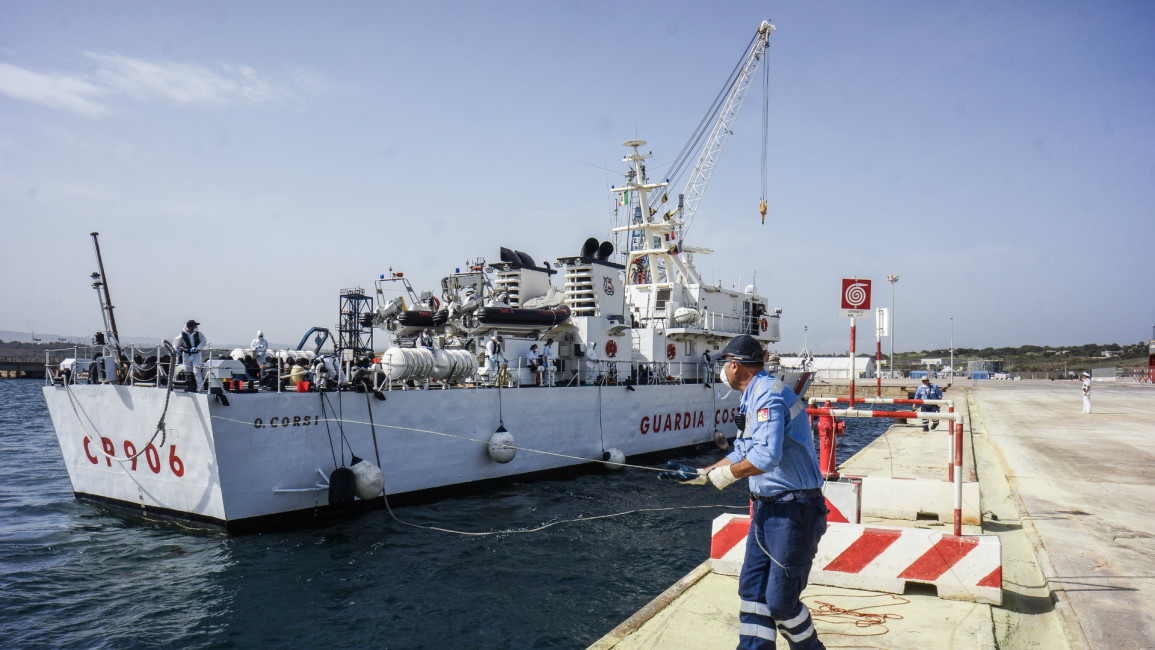
Exodus from Libya
There can be no stronger indictment of the international community's slow response to the tragic events unfolding in Libya and the Mediterranean than reading that children being trafficked resort to drinking their own urine while imprisoned in the hell of a smuggler's seafaring prison.
Many of those facing persecution, violence and racism in Libya are dying from disease, malnutrition and thirst as they flee.
Held in squalid conditions for months at a time, they await money transfers from their families, so that they can continue the second half of a tortuous journey to Sicily, crossing what has become a watery mass grave for more 1,500 migrants so far this year.
The number of causalities is 30 times higher than the same period last year, according to the International Organisation for Migration.
No end in sight
With no end in sight and an imploded economy, the UN's refugee agency, UNHCR, has voiced a deep concern for the safety and security of asylum-seekers as the violence in Libya spirals out of control.
Around 37,000 people in Benghazi and Tripoli have registered with UNHCR. Others are trapped in regions where heavy fighting and structural damage is their daily reality.
"The recent fighting around Tripoli appears to have moved departure points away from the capital, with more boats now leaving from points to the east such as Al-Khums and Benghazi," reports UNHCR.
| Should boosting search-and-rescue capacity not have been an earlier priority? |
"UNHCR has heard of a group of 500 Syrians leaving on three boats over the past week directly from Benghazi - a new and more dangerous departure point, as it means a longer journey to Italy."
An open letter to EU officials from a number of prominent European figures - including Jan Egeland, the secretary-general of the Norwegian refugee council, former Itaian Prime Minister Massimo D'Alema, and Lord Chris Patten, a former EU commissioner - has expressed the widely held concern that not enough has been done to address the plight of refugees:
"We call on the EU heads of state and government to go beyond the ten-point plan issued earlier this week in immediately restoring an expansive search and rescue operation in Mediterranean waters with a mandate and level of funding that match the humanitarian emergency that confronts us."
The letter further states "the starting point of the European response to the recent surge in migrant deaths must be the recognition that we cannot allow such terrible events to afflict those trying to reach our shores".
Rescuing the budget
The deteriorating situation in Libya can only be met, critics argue, by sending a coalition of ground troops to Libya to tackle the lawlessness head-on in a bid to alleviate the suffering of people.
In response to the tragedy and amid rising international pressure, the EU announced that it would double the rescue budget that was drastically reduced last year.
Should boosting search-and-rescue capacity not have been an earlier priority?
Some argue that search-and-rescue operations constitute a "pull factor" that encourages more migrants to attempt sea crossings to Europe.
Italian Prime Minister Matteo Renzi has responded to criticism from aid agencies by calling for an extraordinary European council meeting.
But was this a mere public relations exercise?
"There is a scourge in the Mediterranean and on our continent, this is the new 21st century slavery trade," he said. "We must block these new slave traders because it is about human dignity and security."
Is the EU going to put an end to the slave trade or is it going to destroy the smugglers' vessels?
The truth is, until there are boots on the ground in Libya through a commitment by EU member states to address the cause of the exodus of thousands of refugees - namely the momentum of the civil war, a broken economy, racism and persecution - then the migrants will seek to flee towards European shores, in search of security and a chance for a better life.
Clive Hambidge is Human Development Director at Facilitate Global, a non-profit organisation which aims to bolster democracy and promote human rights law.
Opinions expressed in this article remain those of the author and do not necessarily represent those of al-Araby al-Jadeed, its editorial board or staff.




